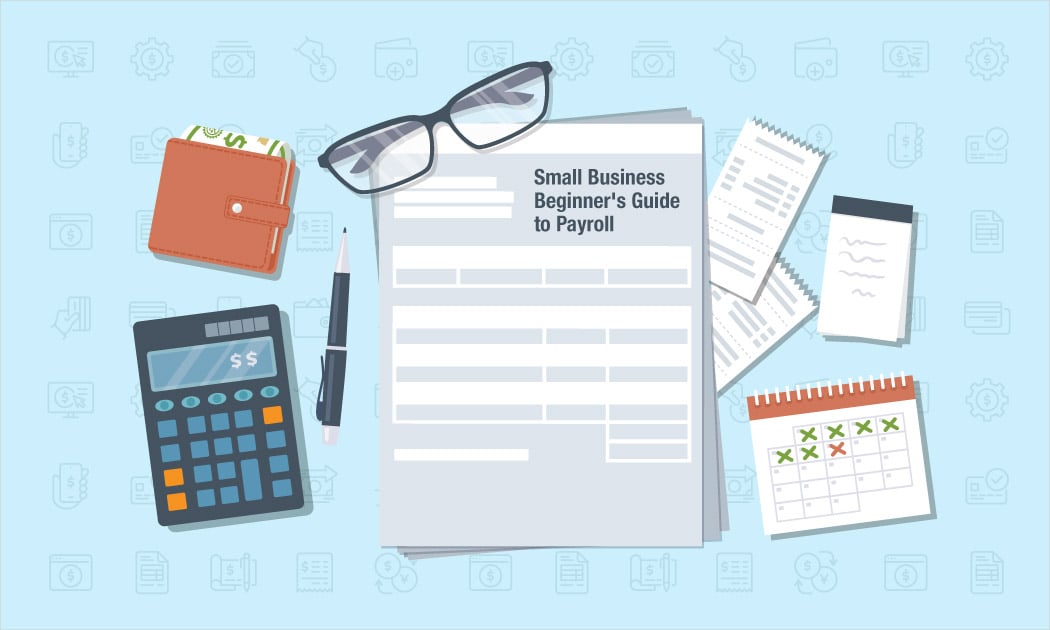The Payroll Blog
News, tips, and advice for small business owners
- Home
- Resources
- Payroll Blog
- How to Set Up Payroll for Small Business
How to Set Up Payroll for Small Business
Whether you are just opening your business with a full staff or you’ve been in business for a while and are just adding an employee to the mix, setting up your payroll for the first time can be overwhelming.

If you are going to DIY payroll, below you’ll find the information you need to know to start payroll and which questions you can expect from your new employee.
5 Tips for Setting Up Payroll
1. Obtain an Employer Identification Number (EIN). An EIN is used to identify a business entity. The IRS makes it simple to apply for an EIN, and you can apply online, fax, mail, or telephone. The only exception to not needing an EIN is if you are a sole proprietor.
2. Know local, state, and federal tax laws. Not so fun fact: tax laws are always changing, and not paying taxes properly can result in hefty fines. When you’re running payroll, you’ll need to be aware of all tax laws you are required to follow including, local, state, and federal taxes, so you are withholding the proper amount from paychecks.
3. Stay on top of paperwork. With each new hire, you will need to obtain their filled out Form W-4. Form W-4 is used for employees to choose their withholding status. As an employer, you need this form so you can withhold the proper amount of taxes from paychecks. At the end of each year, you’ll want to chat with your employee(s) to see if any changes need to be made to Form W-4. This is an important step because you’ll be using the information from that form to file Form W-2 that employees receive so they can file federal income taxes.
4. Choose a payroll schedule. There are four types of payroll schedules: weekly, bi-weekly, semi-monthly, and monthly. Often there are regulations you may need to be aware of that may affect the payroll schedule you select. For example, payroll schedule requirements vary by state, and you may not get to choose the schedule you’d like
5. Mark all of your due dates. Outside of paying your employees the proper amount, payroll also involves paying taxes. Depending on the type of business you have, you might only need to pay taxes once or twice a year, while others may have to pay quarterly. As with most things, missing these due dates can result in penalties and fines, so you will want to map out all of your due dates when you’re setting up payroll to make sure that you never miss a deadline.
How to Answer Employee Payroll Questions
Employees want to get paid correctly and on time, every time. Your employees have bills to pay, so they are probably going to have some upfront questions about their paycheck. Common questions include:
- When will I receive my paycheck?
- You can answer this based on the payroll schedule you’ve selected.
- Do you offer direct deposit?
- While direct deposit is now the most common way for employees to get paid, you could still print checks, or going with payment on some type of reloadable card. If you’re still going to DIY payroll, you can contact your financial institution to get direct deposit set up.
- Can I change my tax withholdings in the future?
- Yes, employees can change their withholding during the year. They will just need to complete a new Form W-4.
While there may be others that come up, going over as much as you can in employee onboarding can help your new employee feel at ease and reassured that they will get paid as planned. Some other questions that might come up that could affect payroll are rules about overtime wages and sick or vacation days, so it’s good to have those answers on hand in case those queries come up.
Bottom Line
While setting up payroll for your new business can be overwhelming, it doesn’t have to be an impossible task. If at any point running payroll on your own gets to be too daunting, you can always determine if online payroll software might make the most sense for your business.
Related Blog Posts
View Our Plans and Pricing
Small Business Is Our Business.
This website contains articles posted for informational and educational value. SurePayroll is not responsible for information contained within any of these materials. Any opinions expressed within materials are not necessarily the opinion of, or supported by, SurePayroll. The information in these materials should not be considered legal or accounting advice, and it should not substitute for legal, accounting, and other professional advice where the facts and circumstances warrant. If you require legal or accounting advice or need other professional assistance, you should always consult your licensed attorney, accountant or other tax professional to discuss your particular facts, circumstances and business needs.



